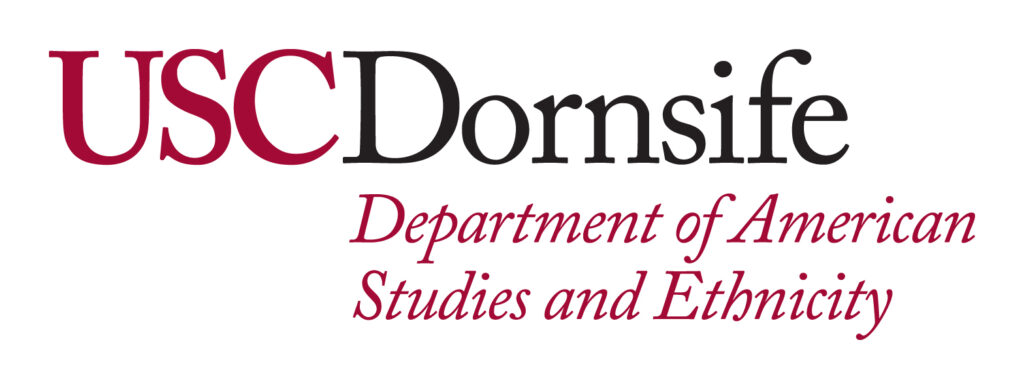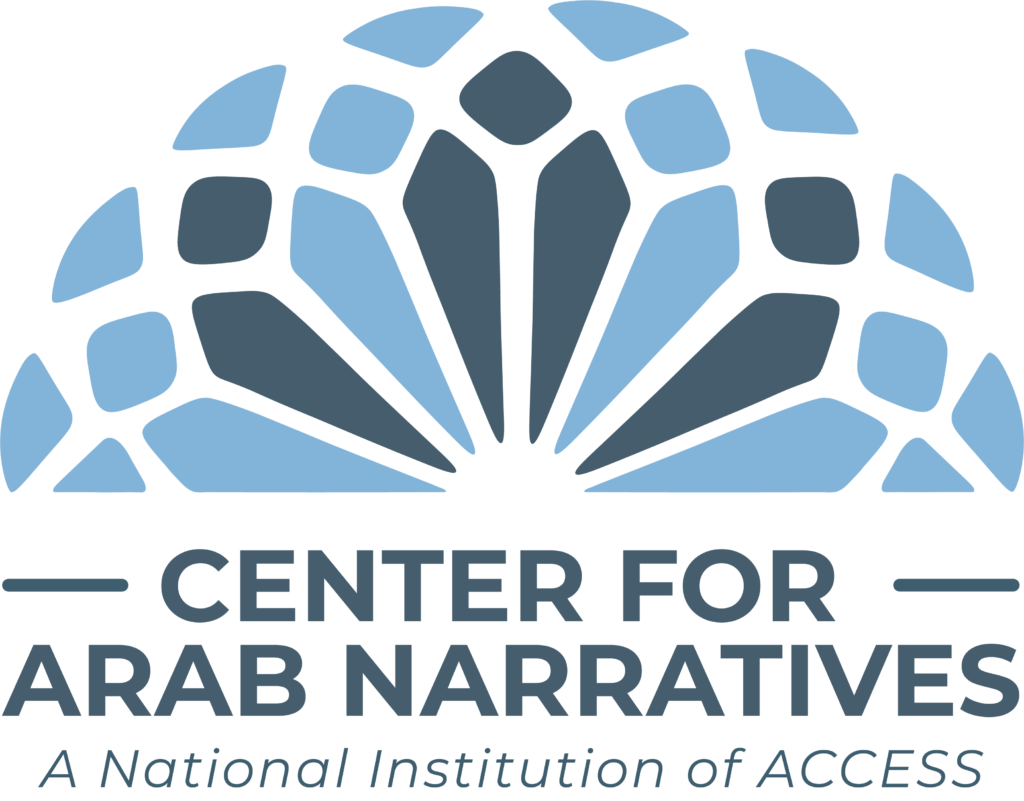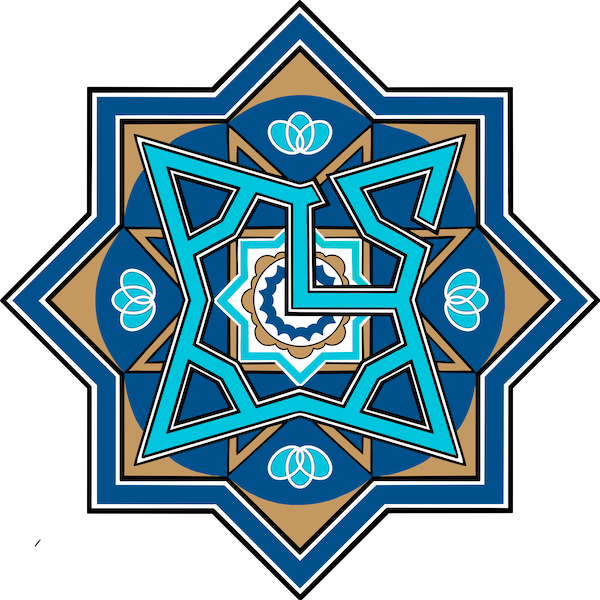AASA 2024, April 12 – 14, Arab American National Museum, Dearborn, MI
Arab American Studies Association 2024 Conference: Critical Futures in Arab American Studies
In April 2014, the Arab American Studies Association held its inaugural conference at the Arab American Museum in Dearborn, Michigan, home to the largest concentration of Arab Americans in the United States. Ten years later, we return to the Arab American National Museum to hold the 2024 in-person Arab American Studies Conference on the theme of Critical Futures in Arab American studies. We invite papers, panels, roundtables, skillshares and workshops. Taking place during the recently established nationally recognized Arab American Heritage Month, the conference seeks to celebrate and invigorate scholarly inquiries and public initiatives in Arab American studies by considering the state of current research and its relationship to both our understanding of the past and implications for the future of the field.
Arab American Studies is witnessing incredible vibrancy, with the publication of an exciting number of books, co-edited volumes, articles, and dissertations, along with highly visible and increasingly successful advocacy efforts and community projects. The theme for the 2024 conference draws from this energy to invite researchers, advocates, artists, and community organizers to consider the current state of the field in light of past and future trajectories in Arab American studies. How have past developments in the field shaped cultural debates and scholarly inquiries today? How do translocal, multilingual, cross-racial, and/or ethnic affiliations turn our attention to untold stories and their histories? How might attending to the environment, migration, labor, capital, war, and empire impact our readings of the past and chart future pathways?
The conference theme “Critical Futures in Arab American Studies” aims to highlight the continuities, disruptions, and reconfigurations of key threads in Arab American studies. We welcome proposals that speak to the following broad frames and are open to ideas that extend beyond them.
- Shifting geographies in Arab American studies
- Arab American studies and its relationality to other fields of study
- De-marginalizing scholarship and communities
- Critical Disability Studies, Queer Critique, and Critical Race Studies
- Environmental Justice, Public Health, and Racial Capitalism
- Artificial Intelligence, technologies, surveillance, and data collection
- Community engagement, museum studies, and public scholarship
- Historical narratives and experiences
- Border, Translation, and Transnational studies
- Cultural production and the arts as agents of memory and/or change
As an interdisciplinary organization, we seek papers on politics, society, art, and culture
from across disciplines. Submissions that do not fit the conference theme are also welcome.
2024 Conference Program
AASA 2024 Conference
April 12 – 14, 2024
Arab American National Museum
Dearborn, MI
Schedule of Events
Friday Evening, April 12, 2024
3:00 pm – 5:00 pm: Conference Registration, Reception (refreshments will be served) – Annex
Session One: Opening Panel – Annex
5:00 pm – 6:30 pm
01. Roundtable: Critical Futures in Arab American Studies
Moderator: Pauline Homsi Vinson
- Sarah Gualtieri
- Evelyn Alsultany
- Diana Abouali
- Amira Jarmakani
- Joe Kadi
Friday Evening Performance: 7:00 pm – Auditorium
Eve – A Work-in-Progress Reading and Feedback Session by Fargo Tbakhi and George Abraham
(In partnership with the Arab American National Museum)
Saturday, April 13, 2024
8:00 am-9:00 am: Conference Registration, Breakfast and Coffee – Annex
Saturday Morning Session One: 9:00am-10:20am
02. Critical Futures & Histories – Library
Chair: Danielle Haque
- Benjamin Schreier, “Arab American Studies and Criticism”
- Mohammed Muharram & Fares Al-Shoaibi, “A Blue Humanities Perspective”
- Rachel Norman, “Multilingual Arabesques: Decentering the United States in Arab American Studies”
03. Alternative Archives in Arab American Studies – Auditorium
Chair: Sarah Gualtieri
- Tam Rayan, “Transformative Futures: Memory Work in the Palestinian Diaspora”
- Stacy Fahrenthold, “Picketing the Syrian Shop: Confronting Mahjari Capitalism and its Archival Afterlives”
- Zaina Ujayli, “The Eskimo and the Terrible Turk: Performing Race on American Lecture Circuits”
04. Advocacy in Local Contexts – Annex
Chair: Linda Sayed
- Rose Wellman: Marriage in Detroit, “Iraqi Kin Work in the Aftermath of US Imperial Violence”
- Layla Azmi Goushey, “Long Distance Arab Nationalism in the North Texas Arab American Community during the 1960s to 1990s”
- Eman Ghanayem, “Indigeneity Matters: On Arab Refugees and Exilic Belonging”
- Zeena Mestari, Rhoda Hijazi, & Monzer Alatrach, “Advancing Research Advocacy Learning Points: Examining Health Challenges and Disparities Among Arab Immigrant and American Populations for Enhanced Policy Development within the American Medical Association”
BREAK: 10:20 am to 10:35 am
Saturday Morning Session Two: 10:35 am-11:55 pm
05. Layers of Community Agency in Arab American Studies – Auditorium
Chair: Waleed F. Mahdi
- Sally Howell, “Right on the Margin: Yemeni Struggles for Influence and Inclusion in Dearborn”
- Louise Cainkar, “Arab Americans at the Center of Afghan Resettlement”
- Natalie El-Eid & Deena Naime, “3la Qalbek: Introducing a Feminist Druze Framework”
- Tristan Leperlier, “Laila Lalami, A Moroccan Writer in the US”
06. The Role of Community-Engaged Research Models in Arab Health Advancement & Trust-Building across North America: Examples from Three Studies – Library
Chair: Siwaar Abouhala
- Siwaar Abouhala (Lead & Project Coordinator)
- Nadia N. Abuelezam
- Roula Hawa
07. Hijab Beyond Misrepresentation: Historical Realities and Contemporary Pushback – Annex
Chair: Rania Said
- Nabilah Khachab, “The Hijab as Spectacle in Muslim Young Adult Literature”
- Noha Beydoun, “Hijab and the Politics of Public Participation and Advocacy”
- Reem Abou-Samra, “The Return to Culture: Unveiling the American Binary”
Lunch and Conference Registration: 12:00 pm – 1:15 pm – Annex
Saturday Afternoon Session One: 1:15 pm-2:35 pm
08. Black/Arab Relationalities: Mapping Community Connections Beyond the Black/White Binary – Auditorium
Chair: Danielle Haque
- Mahder Habtemariam Serekberhan
- Dana M. Olwan
- Carol W.N. Fadda
09. Digital Archives and Public Engagement – Annex
Chair: Layla Goushey
- Matthew Stiffler, Discovering Digital Archives of Arab Americans
- Kimberly Segall, 5 Key Strategies for Writing on Digital Activism and Public Protest
- Kristine Ajrouch, Alzheimer’s Research and Outreach in Arab American Communities
10. Against Erasure: Memory, Diaspora and Resistance in Arab Writing (A Showcase and Conversation) – Library
Presenters: Abdelrahman ElGendy, Sarah Aziza, & Sara Abou Rashed
Saturday Afternoon Session Two: 2:50 pm – 4:10 pm
11. Queer Pasts, Queer Futures – Library
Chair: Amira Jarmakani
- Charlotte Karem Albrecht, “Historical Sites of Arab American Queerness, Queer Sites of Arab American History”
- Mejdulene B. Shomali, “Love Letters: Queer Possibilities of the Arabic Language”
- Rachel Norman, “Queer Language and Futurity in Trans Arab American Literature”
12. Scholarship and Activism as Vehicles of Change in Arab American Communities – Auditorium
Chair: Louise Cainkar
- Nina Shoman Dajani, “Chicago, Advocacy, and Scholarship”
- Randa Serhan, “Putting Palestinians on the New York Map”
- Matthew Stiffler, “Detroit and Dearborn, a Historic Reflection on Community Advocacy”
- Amin Nash, “Anaheim’s Little Arabia”
13. Narrative Memory in Arab American Literature – Annex
Chair: Wessam Elmeligi
- Besan Gh. Jaber, “The Authority of Collective Memory; The Politics of Knowledge and Representation”
- Batoul Ballout, Nancy Demerdash & Rana Huwais, “Of Displacement and Diaspora: Healing through (Re)Constructions of Homeland in Contemporary Arab American Art”
- Mazen Naous, “Backlash Call and Response in Anissa Bouziane’s Dune Song”
Saturday Afternoon Session Three: 4:30 pm – 6:00 pm
14. Skillshare: Pedagogy and Arab American Resources Panel – Library
Moderator: Layla Azmi Goushey
- Cam Amin and Chris Spikler, Creating the ‘Gaza in Crisis’ Library Subject Guide: A Collaborative Effort in Engaged Pedagogy at UM-Dearborn
- Hiba Abid, New York Public Library
- Matthew Stiffler, Digital Archives
- Salwa Mawari, How to implement Arab- American Heritage Month in Middle School.
- Kimberly Segall: Writing Workshop: 5 Key Strategies for Research in Digital Activism and Public Protest
15. Artist Talk and Workshop: Decolonizing Tongues, Weaving Futures: Indigenous/Arab Solidarity, Creativity and Linguistic Self-Determination – Auditorium
Doris Bittar, Elder Lucy Harrison, Noor Hindi, and Ahimsa Timoteo Bodhran
-in partnership with the Arab American National Museum
Saturday Evening Dinner, Poetry, and Community – Annex
7:00 pm Dinner and Community Gathering Honoring Arab American Heritage Month and Solidarity with Gaza. Welcome Remarks by Pauline Homsi Vinson and Waleed F. Mahdi
8:00 pm: Poetry reading featuring Gazan poet Yahya Ashour, Therese Saliba, Joe Kadi, Layla Goushey, and Rania Said. Introductions by Nina Shoman-Dajani.
8:45 pm: Performance by musician Ronnie Malley and vocalist Lubana al-Quntar
Sunday, April 14
8:00 am-9:00 am: Conference Registration, Breakfast and Coffee – Annex
Critical Conversations: Palestine, Campus Activism, and Academic Freedom – Annex
Moderator: Danielle Haque
This informal conversation invites all interested AASA members to exchange ideas about their experiences and strategies that have worked or obstacles faced in response to activism or free speech on campus.
Sunday Morning Session One
9:10 am-10:30 am: Session Six
16. Activism in Global Contexts – Auditorium
Chair: Leila Kawar
- Ahmad Ayyad, “Translation and the Management of the Palestinian-Israeli Conflict: Asymmetric Power Relations and Incompatible Political Interests”
- Alice Mishkin, “Solidarity and its Limitations: Jewish American Organizing and Palestinian Liberation”
- Hani Bawardi, “Whither Arab American Studies? An Assessment of the Direction of the Scholarship in the Last Thirty Years”
- Laila Ballout, “Arab-American Human Rights Politics, Save Lebanon, and Bearing Witness to the use of U.S. Middle East Policy in the 1980s”
17. Narrative Imaginaries of Home and Place – Library
Chair: Pauline Homsi Vinson
- Carol W. N. Fadda, “Rethinking the Temporalities of the “Global War on Terror”: Women’s Narratives of Incarceration and Resistance from South Lebanon”
- Rania Said, “Cities in the Work of Hala Alyan”
- Hasnul Insani Djohar, “Arab-American Women and Nature in Laila Lalami’s Novels”
- Dyala Kasim, “Reclaiming the Homeland: Palestinian American Understandings of Home in Literature”
18. Spaces of Racialization – Annex
Chair: Kimberly Segall
- Rebecca Karim, “‘I Pray They’ll Be Safe’: Religious Racial Socialization Process among Muslim American Families”
- Sena Duran, “Arab Women and Racial Representation in the Industry: Arab American Studies and Adult Film Studies in Conversation”
- Samia Saliba, “The Incel & The Terrorist: Genealogies of US Sexual Exceptionalism”
BREAK: 10:30 am to 10:40 am
Closing Session: 11:40 am – 12:10 pm
19. Public Practices in Arab American Studies – Annex
Moderator: Waleed F. Mahdi
- Nina Shoman Dajani
- Lucy El-Sherif
- Zaina Ujayli
Lunch: 12:15 pm – 1:15 pm
2024 Registration and Shuttle Schedule
Click Here to Register for the AASA 2024 Conference
Registration Rates
| AASA Regular Members | $150 |
| AASA Student Members (or Unemployed) | $50 |
| AASA Non-Members | $180 |
Shuttle Schedule
Museum at designated times during the conference. These times are:
Friday, April 12
3:00 p.m. – 5:00 p.m.
7:30 p.m. – 9:30 p.m.
Saturday, April 13
7:30 a.m. – 9:30 a.m.
9:00 p.m. – 11:00 p.m.
Sunday, April 14
7:00 a.m. – 9:00 a.m.
12: 00 p.m. – 2:00 p.m.
Creating a Welcoming Space
We aim to create a community-centered conference space, which prioritizes connection. Both organizers and participants play a very important role in creating an inclusive and welcoming conference. Please help us ensure full participation by reviewing the guidelines and suggestions below and by making reasonable efforts to follow them.
Mindful of how exhausting conferences can be, we have made efforts to build in breaks and down time, and we commit to maintaining the schedule. We ask that participants do so as well, and that we all give one another grace in this respect.
Meditation/Prayer Space and Quiet Room: The museum offers a Wellness Room located on the lower level adjacent to the Auditorium. This space is equipped with a reclining chair, a prayer mat, and a white noise machine, designed to accommodate one visitor at a time. In the spirit of courtesy and shared access, we kindly request that guests limit their use of the Wellness Room to a maximum duration of 15 minutes. This ensures that all visitors have the opportunity to utilize this facility.
For presenters: Remember that disabilities may not always be visible or obvious. It is wise to assume there will be some members of your audience who may have trouble seeing visual aids (such as slides, overheads, video clips, etc.) and/or some who may have difficulty hearing what is said. We invite you to incorporate as many of these suggestions into your presentation as possible:
- Bring a few print copies for audience members who would like to follow along with you.
- Offer large-print copies (17-pt. or larger) of your full presentation and handouts at your session (feel free to add a disclaimer: “Please do not distribute without the expressed permission of the author” and include your name and contact information).
- Use a high contrast color scheme (i.e. white background, black font or the reverse)
- Use a Sans-Serif font, such as Arial, and maintain a large font size
- Provide minimal text on each slide (only a few points)
- If your presentation contains visual aids such as graphics or photography, please describe orally the visuals for those who have difficulty seeing.
- If your presentation contains video or multimedia, please make sure that the content is captioned. Captioning assists those who are deaf or hard of hearing, as well as those who are not native speakers of the language. Find tips about how to add captioning to your videos here. [https://www.washington.edu/accessibility/videos/youtube/]
- Think about moving toward dialogue as a communication strategy for your paper.
- Use a microphone, if available, during the presentation.
- Provide verbal descriptions of any overheads, slides, or charts, reading all text on the visual aids.
Minimizing screens: Please be cognizant of how distracting and potentially harmful (e.g., migraine-inducing) multiple screens, projected images, and flashing lights (from cameras or other projected images) may be to other participants. We ask you to be mindful of your screen use and whether it may interfere in other attendees’ ability to be fully present in panels and other conference spaces.
Fragrance-Sensitive Event: Please note that AASA 2024 is a FRAGRANCE-SENSITIVE EVENT. “Fragrance” is an ingredient in many personal care and cleaning products that refers to synthetically-created fragrance or scent often listed as “fragrance,” “scent,” “parfum,” or “masking scent” on labels. The chemicals found in synthetic fragrances are harmful to people, animals, and the environment— they can cause sore throat, shortness of breath, headaches, migraines, dizziness, nausea, fatigue, and memory loss for those who are allergic or sensitive to such chemicals. As you can imagine, these symptoms can greatly impact people’s ability to attend class, work, or events and to participate fully in their communities. Given this potential negative impact on our conference attendees, we ask that you do the following:
- Take easy first steps: Refrain from wearing scented products such as perfume, cologne, and fragrant personal care products while using this space
- Be mindful: Consider limiting your use of personal air fresheners, hand sanitizer, fragrant lotions, scented lip balm, lotion, etc. while using this space
- Go above and beyond: Consider washing your clothes in fragrance-free detergent and refrain from using additional scented products like dryer sheets
(thanks to the UCLA Center for the Study of Women for creating this resource: https://csw.ucla.edu/wp-content/uploads/sites/35/2019/01/Fragrance-Free-Toolkit_FINAL.pdf)
Travel and Accommodations
The AASA has coordinated discounts with the Hampton Inn near the Arab American National Museum. The hotel can provide Arabic language services by calling +1 (313)562-0000 and providing the group code, C-AAS.
(313) 562-0000 اذا تحتاج مساعدة للفندق, اتصل
Additionally, the AASA has coordinated shuttle services to take members to and from the hotel to the Arab American National Museum. Shuttles will run on Friday Evening, Saturday Morning and Evening, and Sunday Morning.
Click here for discounted rates at the Hampton Inn.
The closest airport to the Hampton Inn is the Detroit Metropolitan Wayne County Airport.
Click here for more information on Dearborn’s local food scene and sites to visit.
Supporters and Exhibitors
Main Sponsors



Benefactors and Supporters



Presses



